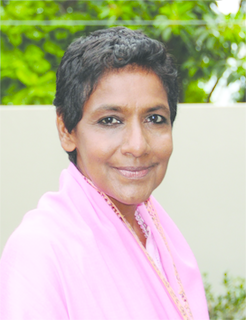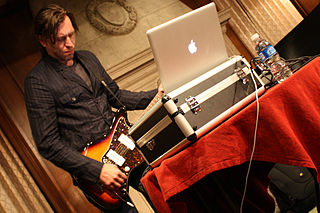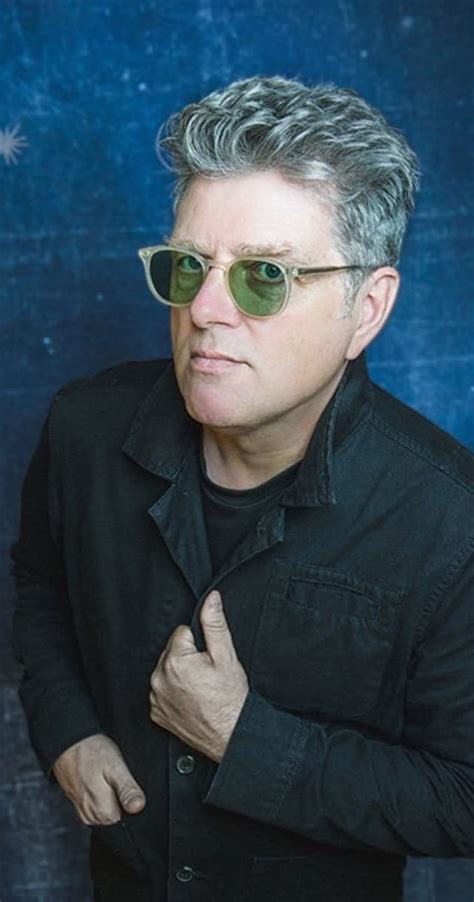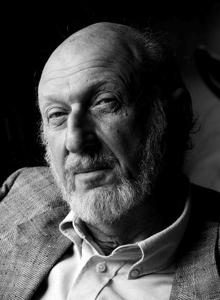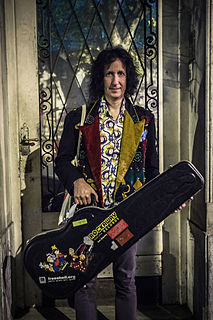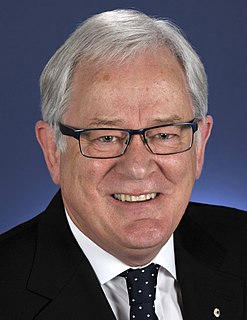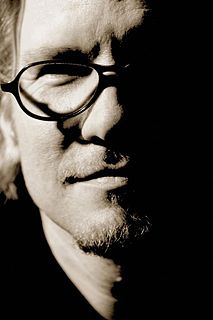Top 877 Electronic Quotes & Sayings - Page 15
Explore popular Electronic quotes.
Last updated on December 21, 2024.
There are television sets in every home, every restaurant, every hotel room, every shopping mall-now they’re even small enough to carry in your pocket like electronic rosaries. It is an unquestioned part of everyday life. Kneeling before the cathode ray God, with our TV Guide concordance in hand, we maintain the illusion of choice by flipping channels (chapters and verses). It doesn’t matter what is flashing on the screen-all that’s important is that the TV stays on.
We think that we have to do so many things and it's unfortunate, entire modern society is besotted with the do-ables, we have to do this, we have to have a half-hour of yoga, an hour of meditation, 2 hours of this, and then 12 hours of work and non-stop electronic gadgets, gizmos etc. etc., and then go home and take care of the family, and then take the children to wherever, and what tends to happen is we do way too much. The society does way too much. One of the greatest things in healing is try for just one day to do nothing. Very difficult.
Back then, things were plainer: less money, no electronic devices, little fashion tyranny, no girlfriends. There was nothing to distract us from our human and filial duty which was to study, pass exams, use those qualifications to find a job, and then put together a way of life unthreateningly fuller than that of our parents, who would approve, while privately comparing it to their own earlier lives, which had been simpler, and therefore superior.
My generation was secretive, brooding, ambitious, show-offy, and this generation is congenial. Totally. I imagine them walking around with GPS chips that notify them when a friend is in the vicinity, and their GPSes guide them to each other in clipped electronic lady voices and they sit down side by side in a coffee shop and text-message each other while checking their e-mail and hopping and skipping around Facebook to see who has posted pictures of their weekend.
With most electronic music I hear now, the things I like will be the things that have soul. It has to have a feeling in it, where it feels warm, or feels epic. I like to play with that in my music as well, there will always be a piano chord or something underneath it to make you feel at home. I always try and make sure even with vocals and layering that you still feel like you know me, no matter whether you're into grime or hip hop.
I am convinced that an electronic machine, no matter how smart and intelligent, being still a mere spatial structure in concept, can neither innovate nor even understand the self-evident proposition: 'No spatial structure can be a representation of any feeling'. Such innovation can only be a work of a non-spatial mind, like a human being, and only such innovation, it should be acknowledged, can pave the way for further scientific achievements.
I started playing guitar at the age of 8 or 9 years. Very early, and I was like already into pop music and was just trying to copy what I heard on the radio. And at a very early age I started experimenting with old tape recorders from my parents. I was 11 or 12 at that time and then when I was like 14 or 15 I had a punk band. I made all the classic rock musician's evolutions and then in the early nineties I bought my first sampler and that is how I got into electronic music, because I was able to produce it on my own. That was quite a relief.
The problem Philip Morris had with electronic cigarettes since the beginning of development was the satisfaction of the smoker. Because the taste is dramatically different and, at the initial stages, the nicotine pharmacokinetics were very slow. You could not get the satisfaction. It's not so easy to crack this code. The taste satisfaction is very important. The closest you are to this, the more chances you have to switch people. It's very nice to have a zero-risk product, but if nobody uses it, you don't have any reduction in public health risk.
I really like the interplay between thinking of text as ephemeral and thinking of it as a concrete, physical thing. With almost anything that I write, I'll stay completely immersed in the electronic text of it for a period of time and in another period, I'll stay immersed in it as a physical thing that can cut your skin. So with the apocalypses, I had them taped all over the wall and they had codes on them. Sometimes I would color code them in terms of thematic elements, sometimes in terms of voice, sometimes visual forms or images.
I am a little troubled about the tea service in the electronic computer building. Apparently the members of your staff consume several times as much supplies as the same number of people do in Fuld Hall and they have been especially unfair in the matter of sugar.... I should like to raise the question whether it would not be better for the computer people to come up to Fuld Hall at the end of the day at 5 o'clock and have their tea here under proper supervision.
Like gold, U.S. dollars have value only to the extent that they are strictly limited in supply. But the U.S. government has a technology, called a printing press (or, today, its electronic equivalent), that allows it to produce as many U.S. dollars as it wishes at essentially no cost. By increasing the number of U.S. dollars in circulation, or even by credibly threatening to do so, the U.S. government can also reduce the value of a dollar in terms of goods and services, which is equivalent to raising the prices in dollars of those goods and services.
I am a big fan of the electronic book. I hate to see the old bookstores close, but they have to reinvent themselves. I believe the First Edition bookstore will be the next thing. People will read electronically, then decide they want to own that book. The author will then be invited to the old bookstores to sign. I think books will always be with us, but they will fill a different need.
Keeping your sanity is sometimes stalling the business aspect of things and being OK with saying no to certain things. Sometimes I just need to be home and write in my diary every day and take long walks. Or just dancing - I have a few dancer friends, and I go to their places and drink tea, and put on these long electronic mixes; maybe smoke a joint, you know? I like to be in nature, and swim in the Swedish sea, and spend time with family.
To the Technocrats: Have mercy on us. Relax a bit, take time out for simple pleasures. For example, the luxuries of electricity, indoor plumbing, central heating, instant electronic communication and such, have taught me to relearn and enjoy the basic human satisfactions of dipping water from a cold clear mountain stream; of building a wood fire in a cast-iron stove; of using long winter nights for making music, making things, making love; of writing long letters, in longhand with a fountain pen, to the few people on this earth I truly care about.
Television and radio are what I call sequential media; they're not simultaneous media. With simultaneous media, you can scan your eye down an electronic or print page and pick among six or seven stories you might like and want to read. With television and radio, you have to wait until the guy's finished talking about the balloon boy, which I don't have the slightest interest in, to find out that all hell's broken loose in Baghdad. Because they've chosen that day to start with the balloon boy.
The only way to gain power in a world that is moving too fast is to learn to slow down. And the only way to spread one’s influence wide to learn how to go deep. The world we want for ourselves and our children will not emerge from electronic speed but rather from a spiritual stillness that takes root in our souls. Then, and only then, will we create a world that reflects the heart instead of shattering it.
Twelve years ago me and Allanah became really sick of writing pop songs, ... Eventually we dug a grave for the Thompson Twins, pushed them in there, and then moved to New Zealand. Before that I'd lived for a long time in south London where reggae was the music of the streets around me. You'd hear it booming out of people's windows and shops, and you could buy great old reggae singles for 50p (NZ1.30) in second hand shops. I'd always loved that sound, so soon after we got here I started making electronic dub records with my mate Rakai Karaitiana as International Observer.
Electronic music was just discovery about sound, all our sound options. The core percussions and melodies, they forget about it, they didn't think about those those for a good four, five years, because they were just discovering the new tools and what they could do with them, you know? The big folk revival, I think is a backlash against that. And now, I think they'll probably try to find somewhere in the middle. It's interesting. It's like push-and-pull. It's always like that, you know? Music history is always like that, this repeating evolution of music.
We had an electronic head and arm for Threepio, and I manipulated the mechanism with a joystick. But it wasn't working. The propman said, 'Give me fifteen minutes.' We all went to get coffee, and when we came back, Threepio's head turned perfectly and his arm moved naturally. I looked up and realized that the prop man had a fishing pole with a fine nylon string attached to Threepio's arm. He had rigged another string around the head, which Chewbacca was holding. As Chewie moved his hands, Threepio's head turned!
I'm definitely not a laptop/midi/abelton guy. But there is a lot of music I like. I really like Bach organ music. I really like Chopin piano music. I really like Wendy Carlo's electronic music. I really like Miles Davis and John Mclaughlin jazz style. So I'm not only an old-school rocker, but I have to admit that I'm going to be listening to The Doors, Rolling Stones, Iggy Pop, David Bowie and Bob Dylan many times a week.
Because today we live in a society in which spurious realities are manufactured by the media, by governments, by big corporations, by religious groups, political groups... So I ask, in my writing, What is real? Because unceasingly we are bombarded with pseudo-realities manufactured by very sophisticated people using very sophisticated electronic mechanisms. I do not distrust their motives; I distrust their power. They have a lot of it. And it is an astonishing power: that of creating whole universes, universes of the mind. I ought to know. I do the same thing.
The iPod is clearly a tipping point (and I'm not quite sure it is a wholly positive development), because it is a revolution in the way that we consume creative property, which I would call art. It has radically changed the relationship between the artist and the audience, how money changes hands, and how much money changes hands. Music was the first, and books are coming next. The Kindle or some form of electronic book is clearly inevitable, and it will massively reshape how books are sold, who pays for them, and how they're consumed. It is going to be really fascinating.
When I was growing up, there was no one. There were very few black women in tech; there were very few black women in the fashion game. We didn't have our Grace Jones - Grace Jones was before my time. We didn't really have a lot of black women in electronic and punk who were celebrated in the same levels as, say, your big mega-superstars.
Jazz stopped being creative in the early '80s. After your acoustic era, where you had the likes of the Miles Davis Quintet, when it gets to the '70s it started being jazz fusion where you had more electronic stuff happening, then in the '80s they started trying to bring back the acoustic stuff, like Branford Marsalis and the Wynton Marsalis & Eric Clapton sextet. It started dying down from there. Miles was still around in the '80s and he was still being creative; he was playing Michael Jackson songs and changing sounds, but a lot of people were still trying to regurgitate the old stuff.
Electronic brains may help us to use our heads but will not excuse us from that duty, and as to our hearts-cardiograms cannot diagnose what may be most ill about them, or confirm what may be best. The faithful woman and the versatile brave man, the wakeful intelligence open to inspiration or grace-these are still exemplary for our kind, as they always were and always will be.
Most Americans living below the official poverty line own a car or truck - and government entitlement programs seldom provide cars and trucks. Most people living below the official poverty line also have air conditioning, color television, and a microwave oven - and these too are not usually handed out by government entitlement programs.
Cell phones and other electronic devices are by no means unheard of in low-income neighborhoods, where children would supposedly go hungry if there were no school-lunch programs. In reality, low-income people are overweight more often than other Americans.
Frequently, I go straight into the studio and see what's around. I might hire a couple of instruments that I've never used - maybe a particular type of electronic organ or an echo unit. Then I just dabble with sounds until something starts to happen that suggests a texture. The texture suggests some kind of mood, and the mood suggests some kind of lyric. That's like working in reverse, often quite the other way around, from sound to song. Although often they stop before they get to the song stage.
The issue, as correctly emphasized by Carl Sagan, is the probability of the evolution of high intelligence and an electronic civilization on an inhabited world. Once we have life (and almost surely it will be very different from life on Earth), what is the probability of its developing a lineage with high intelligence? On Earth, among millions of lineages of organisms and perhaps 50 billion speciation events, only one led to high intelligence; this makes me believe in its utter improbability.
We had a level of tariffs of about five per cent. Now a lot of those will go, most of them will go over time, some of them immediately. Now that means that electronic goods and other things, white goods, coming into Australia, will be cheaper for our community. It also means in many cases that the inputs used by our high-end manufacturers to make a final product are also coming in cheaper than they otherwise would - so it makes those manufacturers more competitive.
Communication media enabled collective action on new scales, at new rates, among new groups of people, multiplied the power available to civilizations and enabled new forms of social interaction. The alphabet enabled empire and monotheism, the printing press enabled science and revolution, the telephone enabled bureaucracy and globalization, the internet enabled virtual communities and electronic markets, the mobile telephone enabled smart mobs and tribes of info-nomads.
It may be true that encryption makes certain investigations of crime more difficult. It can close down certain investigative techniques or make it harder to get access to certain kinds of electronic evidence. But it also prevents crime by making our computers, our infrastructure, our medical records, our financial records, more robust against criminals. It prevents crime.
A good portion of my work with Tangerine Dream at the time involved film music, and I remember approaching it as any 23-year-old would - without much fear or respect. Also, Tangerine Dream was typically asked to deliver a monochromatic kind of score, the electronic-analog trademark sound that TD had become famous for following landmark films such as Sorcerer [Universal, 1977], Thief [MGM, 1981], and Risky Business [Warner Brothers, 1983].
Executive Severance, a laugh out loud comic mystery novel, epitomizes our current cultural moment in that it is born from the juxtaposition of authorial invention and technological communication innovation. Merging creative text with new electronic context, Robert K. Blechman's novel, which originally appeared as Twitter entries, can be read on a cell phone. His tweets which merge to form an entertaining novel can't be beat. Hold the phone; exalt in the mystery-engage with Blechman's story which signals the inception of a new literary art form.
What's really going on here is, this is a media shift. It's comparable to what happened in the 1950s and the birth of electronic mass media back then.This is the birth of a new kind of personal media, where, instead of we're all watching one program, we're all watching each other. And the history of media makes it really clear. Whenever we have a big innovation, the first wave of stuff we do is pretty crummy. The printing press gave us pornography, cheap thrillers, and how-to books. Television gave us Newt Minow's vast wasteland.
Today's children are living a childhood of firsts. They are the first daycare generation; the first truly multicultural generation; the first generation to grow up in the electronic bubble, the environment defined by computers and new forms of television; the first post-sexual revolution generation; the first generation for which nature is more abstraction than reality; the first generation to grow up in new kinds of dispersed, deconcentrated cities, not quite urban, rural, or suburban.
Percussion music is revolution. Sound and rhythm have too long been submissive to the restrictions of nineteenth century music. Today we are fighting for their emancipation. Tomorrow, with electronic music in our ears, we will hear freedom. At the present stage of revolution, a healthy lawlessness is warranted. Experiment must necessarily be carried on by hitting anything-tin pans, rice bowls, iron pipes-anything we can lay our hands on. Not only hitting, but rubbing, scraping, making sound in every possible way...What we can't do ourselves will be done by machines which we will invent.
There are just a host of problems born by the electronic age. Things we couldn't even conceive of. I was amused by the analogy that Justice Scalia made in a case about a GPS tracker so you don't know that's being done to your car, is that a violation of your right to protection against unreasonable searches and seizures. So Justice Scalia imagines a constable clinging to the bottom of a carriage as it went on its way, so there was some notion that this similar: there is an official eye that's on you, but you don't know about it. Yes, there are all kinds of challenges.

